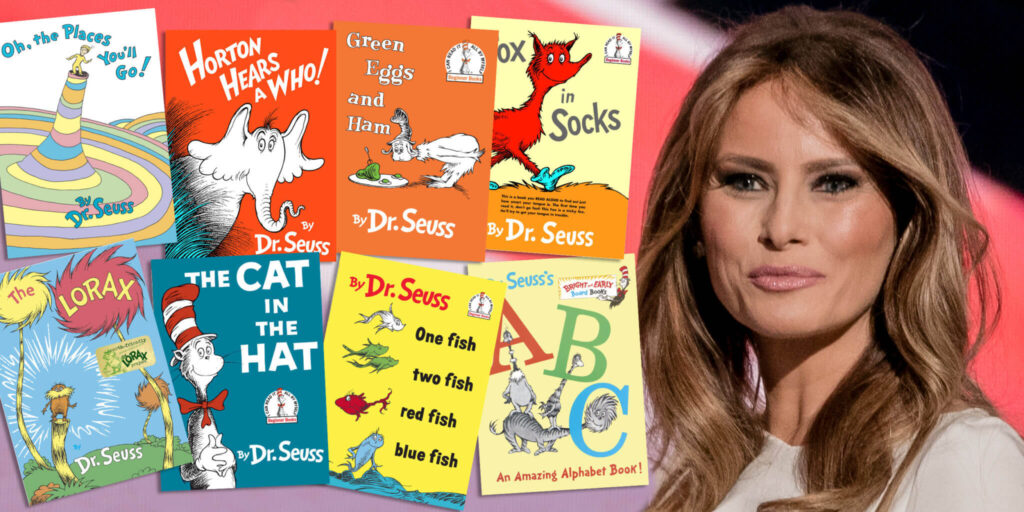by The Cowl Editor on October 5, 2017
Opinion

by Sarah Kelley ’18
Opinion Co-Editor
To what extent can we as a nation allow divisive politics to dominate and influence our own children’s access to educational resources?
In celebration of National Read a Book Day on Sept. 6, First Lady Melania Trump sent 10 Dr. Seuss books to a chosen school in each state across the nation.
In her letters to students, Trump wrote, “I wanted to send you a special gift. Dr. Seuss’s Oh the Places You’ll Go! is a book my son and I have read over and over again, and one that we want to share with all of you…Please also remember that you are the future of America and that you can accomplish anything you set your mind to.”
While this seemingly innocent gift may have initially appeared to be a way for the first lady to promote education and help children throughout our nation, one librarian had a very different understanding.
Liz Phipps Soeiro, a librarian from a public school in Cambridge, Massachusetts, responded to the first lady’s gift. In a letter to Melania Trump, Soeiro rejected the books, explaining that her schools did not have a “need” for them.
In addition to vehemently criticizing the racist and stereotypical nature of many Dr. Seuss books, Soeiro also slammed the Secretary of Education, Betsy DeVos and the current state of the educational system in the United States.
Though her response was caustic, Soeiro did make many valid and truthful points. The systematic marginalization of countless schools across our nation as a result of policies put in place by our Department of Education, the possible racist undertones of certain Dr. Seuss books, and the potential need for the White House to reconsider what types of schools they gift books to are all important issues that should be resolved.
And while denying the truth and legitimacy of these issues would be ignoring the changes that must be made within our nation’s system of education, the question still stands as to how we as a nation can allow politics to divisively impact children’s access to educational resources—even if those resources are just a gift of 10 Dr. Seuss books.
While Soeiro did have a right to express her views on the first lady’s gift and the Trump administration, did she have the right to reject books gifted to school children to promote their education and learning?
Could no child within her school have benefited from access to these books? Was there truly nothing positive to be gained through the acceptance of these Dr. Seuss books into her school system?
Asking these questions is not to deny the fact that many other schools throughout the United States could have benefitted more from this type of gift. Rather, it forces us as a nation to question whether the contentious politicization of something so innocent and yet so transformational as a book is justified.
Many other first ladies, including Michelle Obama, Hillary Clinton, and Barbara Bush, have read Dr. Seuss books to children at countless educational events. These events were framed in the positive light of educational promotion, with no backlash regarding the nature of the Dr. Seuss books, which children were benefitting from the readings, or the state of our Department of Education
And although the discussion of these issues is vital if positive changes are to be made within our nation’s educational policies, we must continue to question how these dialogues begin. Can we as a nation allow the freedom of expression of one individual to potentially impact the access to educational resources of children?
Is there a line that should be drawn in terms of how far we can allow politics to affect our perspectives and interpretations of educational promotion? Had these same books been gifted by a first man (*cough cough* Bill Clinton), if election results had been different, would Soeiro still have rejected them? Would this issue still be newsworthy? Is this something we as a nation should accept?
We must keep these questions in mind moving forward. We must recognize and be skeptical of when, where, and how we should politicize actions, such as individuals giving books to children, and beyond.